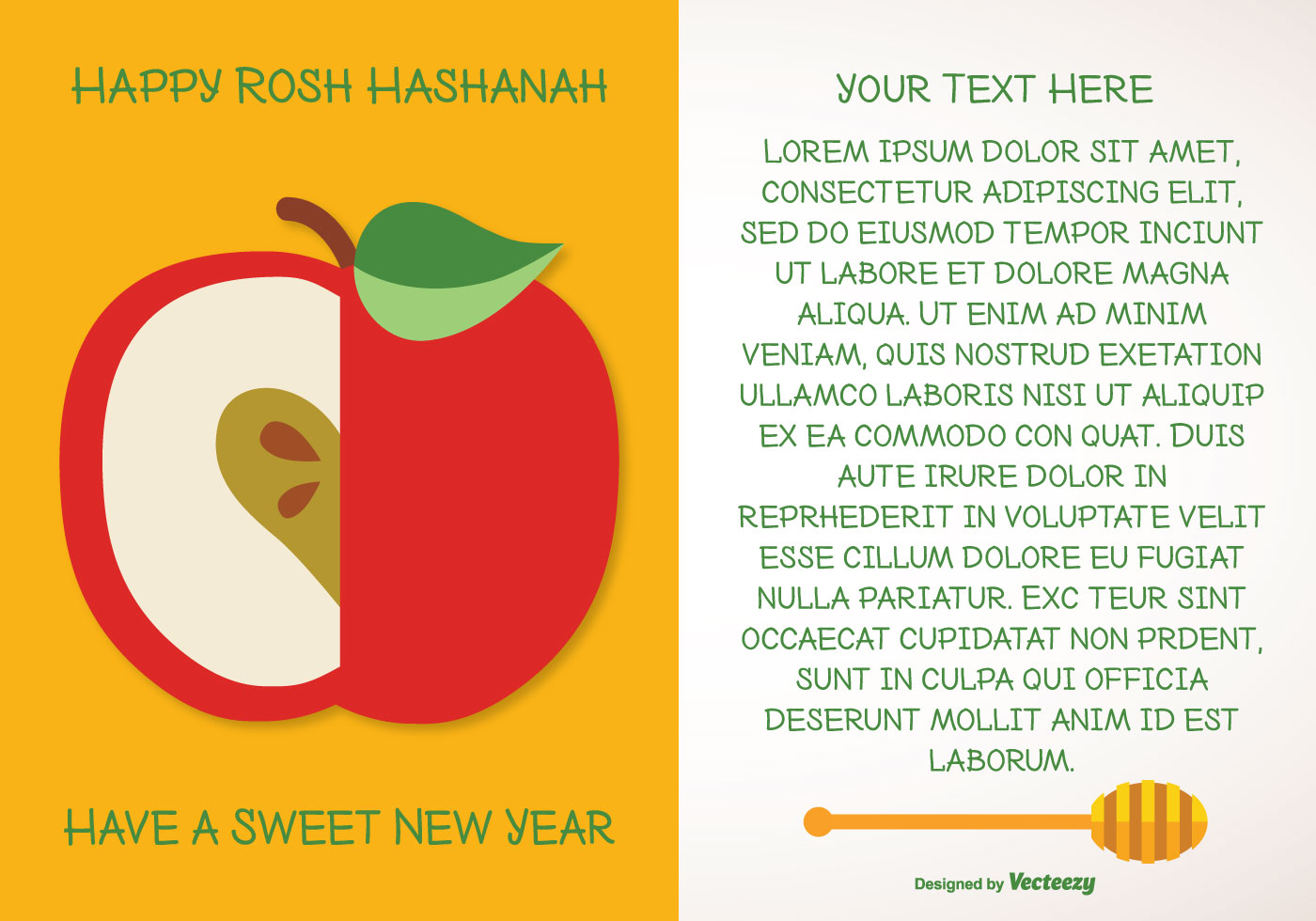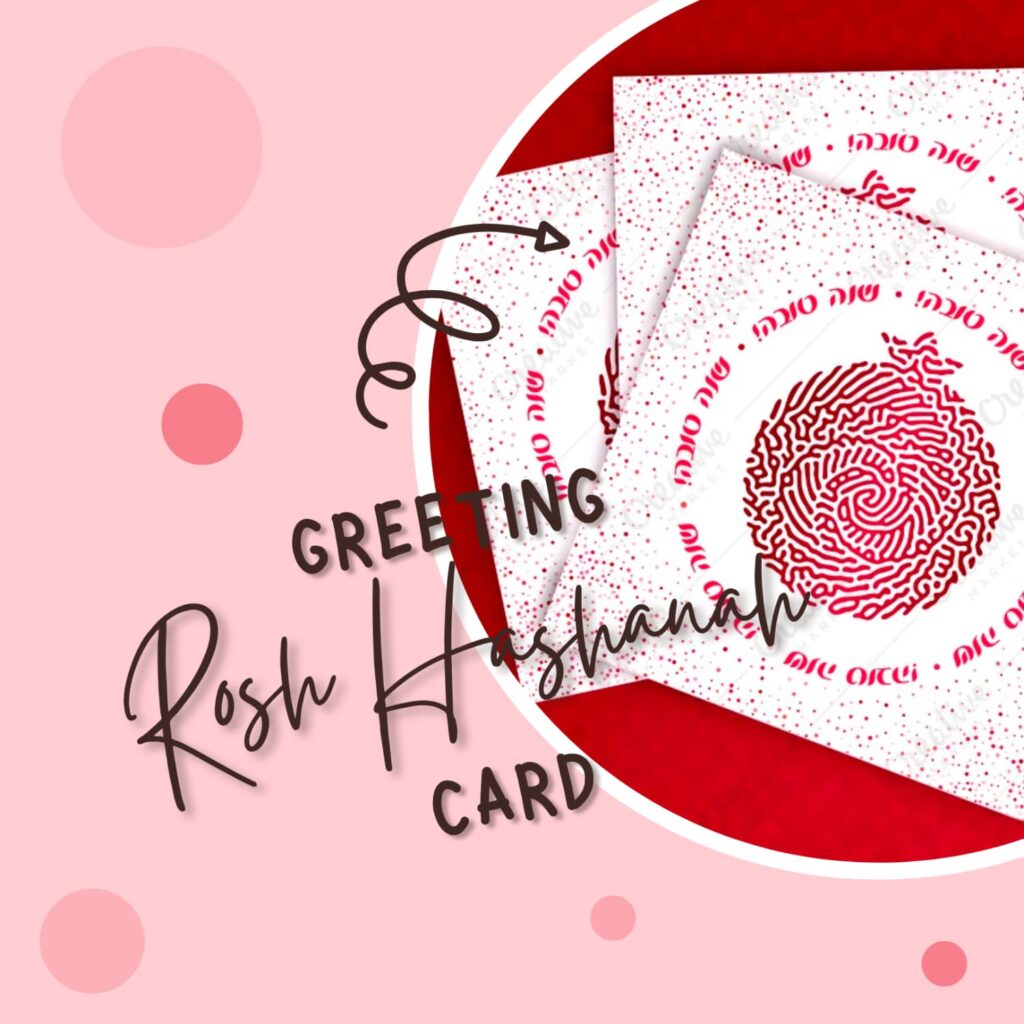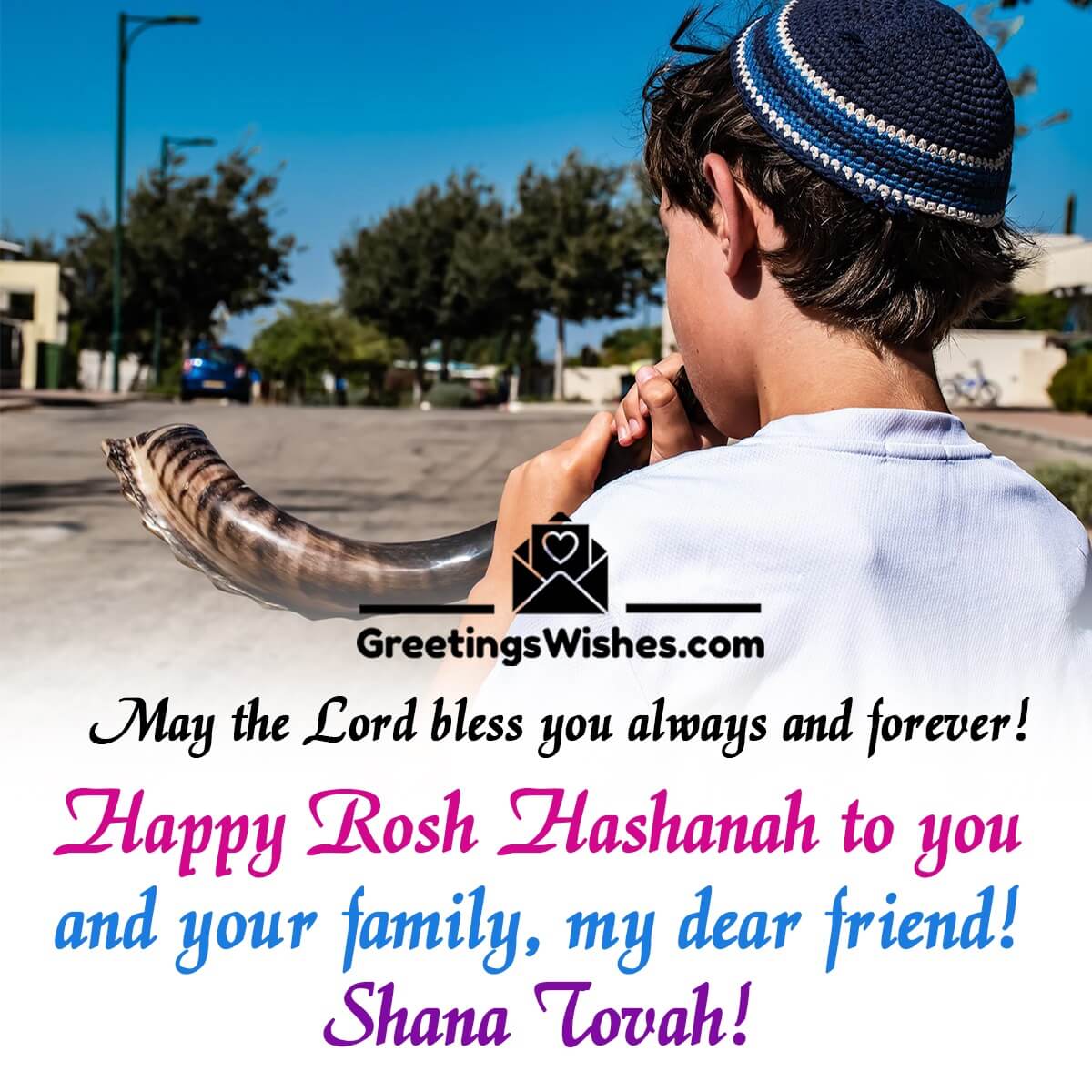Discovering The Heart Of A Rosh Hashanah Greeting
When the autumn air starts to feel a little different, there's a special time on the horizon for many people around the world. It's Rosh Hashanah, the Jewish New Year, a period filled with deep meaning and a chance for new beginnings. This holiday, you know, isn't just about turning a calendar page; it's a time for reflection, for looking back at the year that's passed, and for looking forward to the one that's about to begin. So, understanding how to offer a thoughtful Rosh Hashanah greeting can really make a difference.
For those unfamiliar, Rosh Hashanah marks the start of the Jewish High Holy Days, a ten-day period that concludes with Yom Kippur. It's a time, in some respects, for personal introspection and, quite literally, a spiritual reset. People often gather with family, share special meals, and attend synagogue services. Knowing the right words to say, or even just what the holiday is about, helps connect people during this important season.
This article will help you get a better grasp of what a Rosh Hashanah greeting means, how to express it, and why these particular words carry such weight. We'll explore the traditional phrases and offer ideas for sharing your good wishes, making sure your message feels sincere and warm. It's about, you know, sharing hope and good intentions for the year ahead.
- Juanita Du Plessis Bio Age Wiki Facts
- Ify Nwadiwe And Wife Aurora Has A
- Who Is Corinna Kopf Biography Net Worth
- Dorinda Medley Bio Net Worth Husband Or
- Liz Shanahan Is Michael Symon S Wife
Table of Contents
- What Exactly is Rosh Hashanah?
- Traditional Rosh Hashanah Greetings
- Crafting a Meaningful Greeting
- The Deeper Meaning Behind the Words
- Common Questions About Rosh Hashanah Greetings
What Exactly is Rosh Hashanah?
Rosh Hashanah, you see, is the Jewish New Year. It's a significant time, marking the beginning of the civil year in the Jewish calendar. This holiday, which falls on the Hebrew calendar dates of 1 and 2 Tishrei, is a moment for celebration, but also for serious contemplation. It's a time for thinking about the past year's actions and making resolutions for the upcoming one. People often reflect on their lives and consider how they can grow and improve.
The Spirit of the Jewish New Year
The spirit of Rosh Hashanah is, in a way, about renewal and hope. It's not just a party; it's a profound spiritual experience. Families come together, share meals that often include symbolic foods like apples dipped in honey for a sweet year, and attend synagogue services where the shofar, a ram's horn, is blown. This sound, apparently, is a call to awaken and to remember one's spiritual purpose. It's a very unique and moving experience for many.
When Does Rosh Hashanah Happen?
Rosh Hashanah's dates, like your own calendar, shift each year on the secular calendar because the Jewish calendar is lunar-based. For instance, the Jewish New Year, as mentioned in some records, began on the evening of October 2nd and lasted through the evening on October 4th in a past year. The Jewish calendar date begins at sundown, which is pretty typical for Jewish holidays. So, it’s always good to check the coinciding secular dates for the upcoming years if you're planning to send greetings.
- Bishop Briggs Husband Did Not Propose Her
- A Glance At Ayana Fite Net Worth
- Connor Payton Is Sean Payton S Son
- Antron Brown Wife Billie Jo Brown Married
- Sam Frank 360 Twirl Video Who Is
Traditional Rosh Hashanah Greetings
When it comes to wishing someone well for Rosh Hashanah, there are a few traditional phrases that are commonly used. These greetings carry centuries of meaning and are a simple yet powerful way to express your good wishes. They are, you know, the standard ways people connect during this time. Understanding them makes your greeting feel more authentic.
Shana Tovah and Its Meaning
The most widely recognized Rosh Hashanah greeting is "Shana Tovah." This phrase, quite simply, means "Good Year." It's a straightforward and heartfelt wish for a prosperous and happy year ahead. You can use it when speaking to someone directly, or when writing a card or message. It's a very versatile phrase, really, and widely understood.
Sometimes, people will add "U'Metukah" to the end, making it "Shana Tovah U'Metukah," which means "Good and Sweet Year." This addition emphasizes the hope for a year filled with not just goodness, but also pleasant experiences. It's a nice little extra touch, if you want to add it. This is, you know, a common way to express a fuller wish.
L'Shanah Tovah Tikatevu: A Blessing for Inscription
Another common and slightly more formal greeting is "L'Shanah Tovah Tikatevu." This phrase, which translates to "May you be inscribed for a good year," carries a deeper spiritual meaning. It refers to the traditional belief that on Rosh Hashanah, everyone's fate for the coming year is inscribed in the Book of Life. This greeting expresses a wish that the person will be written down for a year of blessings and well-being. It's a powerful and traditional way to wish someone well, particularly during the High Holy Days. This greeting, in a way, encapsulates the serious nature of the holiday.
Crafting a Meaningful Greeting
Beyond the traditional phrases, you can make your Rosh Hashanah greeting even more special by adding a personal touch. A simple "Shana Tovah" is always appropriate, but a few extra words can really show you care. It's about, you know, making it truly yours.
Personalizing Your Message
Think about your relationship with the person you're greeting. Are they a close friend, a family member, or a colleague? For a close friend or family member, you might add a specific wish for their health, happiness, or success in a particular endeavor. For example, you could say, "Shana Tovah! I hope this new year brings you much joy and peace." Or, perhaps, "Wishing you a very sweet new year, filled with all the good things you hope for." This makes the message feel, you know, truly personal.
If you're sending a greeting to someone you don't know as well, a simple "Shana Tovah" is perfectly fine. You might add a general wish like, "Wishing you and your family a happy and healthy New Year." The key is to be sincere. It's about the thought, basically, that counts the most. A boost in knowledge, like knowing these greetings, helps you throughout your entire career—not just for an upcoming exam, but for connecting with people too.
Ideas for Sharing Your Wishes
There are many ways to deliver your Rosh Hashanah greeting. A handwritten card, perhaps, adds a very personal touch. An email or text message is also perfectly acceptable, especially for those who live far away. Some people might even share their greetings over a video call, which is a nice way to connect face-to-face. The most important thing, you know, is that the greeting comes from the heart.
You might also consider sending a small gift, like a jar of honey or a new apple, to accompany your greeting. These are symbolic of a sweet new year and are often appreciated. It's a lovely gesture that, really, adds to the holiday spirit. Just a little something can make a big impact.
The Deeper Meaning Behind the Words
The term "Rosh" itself, as a matter of fact, is found in the Hebrew Bible, and its interpretation has been the subject of much scholarly debate. It appears in prophetic literature and is often associated with eschatological themes, though in the context of Rosh Hashanah, it simply means "head" or "beginning." So, Rosh Hashanah is literally the "Head of the Year." This connection to the very start of things makes the greetings particularly powerful. It's a moment, in some respects, for setting the tone for the entire year ahead.
The act of offering a Rosh Hashanah greeting is more than just a polite custom; it's an expression of hope, community, and shared humanity. When you say "Shana Tovah," you're not just wishing someone a good year; you're also acknowledging the significance of the holiday and participating in a tradition that spans thousands of years. It's a way to affirm connection and mutual well-wishing. You know, it's about building bridges.
Common Questions About Rosh Hashanah Greetings
People often have questions about how to approach Rosh Hashanah greetings, especially if they are not familiar with the holiday. Here are a few common ones:
What is the most common greeting for Rosh Hashanah?
The most common greeting, you know, is "Shana Tovah." This simply means "Good Year" and is widely understood and appreciated. It's a safe and appropriate choice for almost any situation. Sometimes, people will add "U'Metukah" for "Good and Sweet Year."
Is it okay to say "Happy New Year" for Rosh Hashanah?
While "Happy New Year" is generally understood, using a traditional Hebrew greeting like "Shana Tovah" is, frankly, more respectful and specific to the holiday. It shows you've made an effort to understand the custom. It's a better way, in a way, to show you care.
When should I send Rosh Hashanah greetings?
Rosh Hashanah begins at sundown on the first day of the holiday, so it's best to send your greetings just before or during the holiday period. Since the Jewish calendar date begins at sundown, you might send a message on the day before the holiday begins, or on the first day itself. It's about, you know, timely good wishes.
To learn more about Jewish holidays and traditions on our site, you might find some interesting information. Also, you could explore the deeper meanings of holiday customs for further insight.
For more general information on the Jewish calendar and its holidays, you could check out resources like My Jewish Learning, which offers quite a lot of detail.
- Vick Hope Bio Age Wiki Facts And
- Tom Sandoval Parents Meet Anthony Sandoval And
- What Happened To Carolyn Warmus Face Brain
- Ross Naess Children Indigo Naess Leif Naess
- Sharon Case Net Worth Husband Married Children

Rosh Hashanah Greeting Illustration 96842 Vector Art at Vecteezy

Rosh Hashanah Greeting Card – MasterBundles

Rosh Hashanah Wishes ( 2 October ) - Greetings Wishes